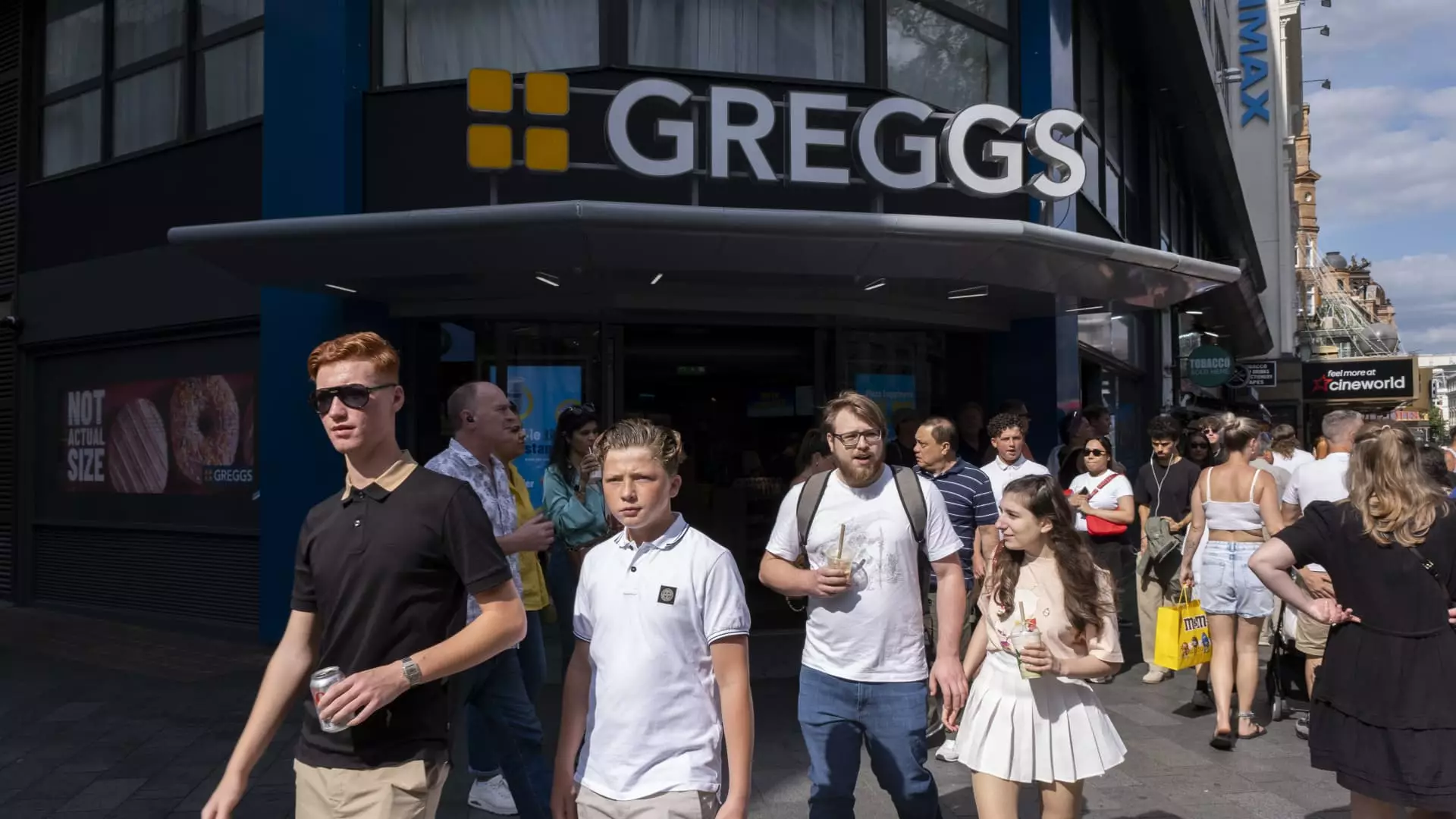In an era where climate volatility impacts every facet of daily life, Greggs, the beloved British bakery chain, finds itself confronting a harsh new reality. While its menu of comforting, affordable treats—sausage rolls, chicken bakes, and donuts—have long been staples of the high street, recent weather patterns have exposed vulnerabilities that no marketing campaign can offset. The scorching heatwave swept across the UK, with temperatures soaring to nearly 33°C, underscoring how climate extremes are not just an environmental issue but a direct threat to retail continuity. The company’s acknowledgment that customer footfall diminished during this period reveals an uncomfortable truth: the very conditions that traditionally bolstered sales, such as colder temperatures, are now becoming less predictable, throwing into question the resilience of a business model heavily reliant on consistent, seasonal demand.
From Comfort Food to Climate Casualty
While Greggs’ narrative of success hinges on the accessibility and familiarity of its offerings, recent data challenge the sustainability of this approach in a warming climate. The company’s modest 2.6% like-for-like sales growth in the first half of 2025 appears robust compared to previous years, but this statistic does little to hide the underlying issue: the pandemic years’ resilience is waning. The company’s warning of potentially modestly falling profits for 2025 signals an unsettling shift. In an environment where consumers are increasingly cautious spending due to inflation and economic uncertainty, weather-induced dips amplify the fragility of Greggs’ business. The company’s efforts to expand—aiming for dozens of new outlets—may seem like a bright spot, but aggressive growth appears increasingly disconnected from the reality of climate-undermined consumer patterns.
The Illusion of Consistent Demand in a Changing Climate
The narrative that Greggs can simply weather the storms of climate change with seasonal adjustments fails to grasp the deeper implications. As temperatures continue to rise and weather events become more unpredictable, the idea that hot snacks will always be in demand shrinks in significance. Consumers’ preferences may shift more permanently towards cooler, healthier options, driven by climate consciousness and health awareness. Greggs’ reliance on traditional fast-sell products, which are easily affected by temperature swings, underscores a flawed assumption that demand is stable enough for long-term expansion. Mark Crouch’s critique highlights a crucial flaw: the value-driven, convenience-based appeal, which once seemed invulnerable, now faces a more skeptical audience. Inflation, while easing, doesn’t compensate for the loss of footfall and the changing tastes of a more climate-conscious generation. It’s becoming increasingly clear that businesses rooted solely in convenience and affordability must adapt or risk obsolescence under the weight of climate realities and shifting consumer priorities.

